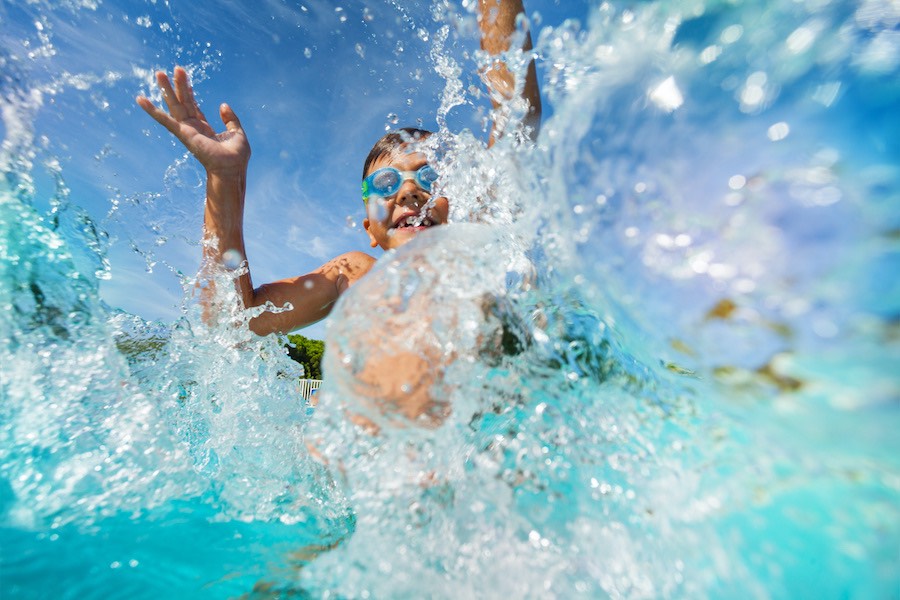Chlorine Rash: Causes and Treatment

Chlorine Rash: Causes Treatment
Summer is upon us which means our skin takes on new battles in an effort to stay healthy. From increased sun exposure and the risks that poses to more time spent in the pool. This usually means more exposure to chlorine, which can cause a chlorine rash. Let’s take a look at the treatment and prevention.
What is a Chlorine Rash?
This one is pretty self explanatory. Chlorine is an element used in pools due to its disinfectant qualities. Usually the water in hot tubs, swimming pools etc. cannot be changed frequently despite many of us using it. To kill all those germs chlorine is added to the pool. It is also added to cleaning products due to these properties.
So, it goes without saying, if you love to swim then you’ll be exposed to chlorine quite often. Unfortunately, this element isn’t without its negatives. It can often cause dryness and this leads to irritation. This doesn’t necessarily mean you’re allergic to chlorine, just sensitive to it. This can often happen after frequent exposure as your skins defences wear down.
Chlorine Rash Symptoms
Its usually easy to work out if you have a chlorine rash since most of us can remember the last time we were in a pool! However, here are some signs to look out for:
- itchy, red rash
- scaling or crusting
- small bumps or hives
- swollen or tender skin
A common symptom is itchy eyes, and chlorine rashes are seen frequently in children who tend to have more sensitive skin which is worth noting. You could even find yourself coughing and sneezing if your chlorine sensitivity is particularly bad.
What Causes It?
You may not suffer from chlorine rash at all and perhaps you’ve only noticed it in family or friends. This is because the rash is usually experienced due to repeated exposure. The immune system begins to treat the chlorine as a ‘foreign invader’ like a bacteria or virus and the skin then becomes irritated and inflamed. It may also remove natural oils from the skin which causes inflammation and dryness too.
Even after washing, some of the chlorine remains on the skin. With continued exposure the irritation is prolonged. Often it is lifeguards, professional cleaners, swimmers that experience chlorine rash the most.
How To Treat
Usually a chlorine rash is easily treated with an over the counter products. A light corticosteroid cream such as hydrocortisone usually does the job. However, we don’t recommend using on the face since you will risk thinning the skin.
If you notice hives, try using medication that contains diphenhydramine such as Benadryl (hayfever and allergy medication). If you give it a quick google search you can also find washes and lotions that soothe the skin and remove chlorine.
Prevention
As always, the best form of defence against chlorine rash is prevention. Some good ways to avoid this rash are:
- Before and after you’re exposed to chlorine, take a bath or shower. If you apply lotions to skin that has chlorine present, it’s only likely to irritate it more.
- This is a common one amongst swimmers. Use petroleum jelly, such as Vaseline, to areas that are irritated before going into a pool or doing cleaning. This acts as a protective barrier between your skin and the water.
- Take a break now and then to allow your skin time to heal and build up its natural oils
Speak to a Dermatologist
Our last recommendation is to speak to a dermatologist. They can help establish exactly what your rash is, the severity and the best course of treatment. To save money and waiting times use our online dermatology service and we can get you checked by a professional within hours.
Ask a Dermatologist Now
Anonymous, fast and secure!

The Specialist doctor from the University Hospital in Gothenburg, alumnus UC Berkeley. My doctoral dissertation is about Digital Health and I have published 5 scientific articles in teledermatology and artificial intelligence and others.

